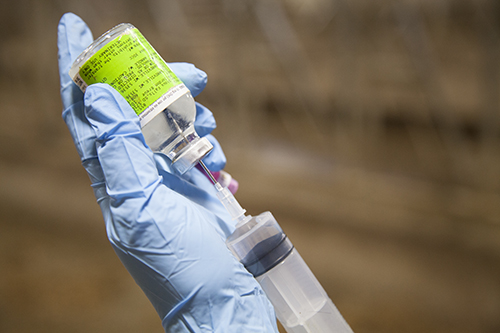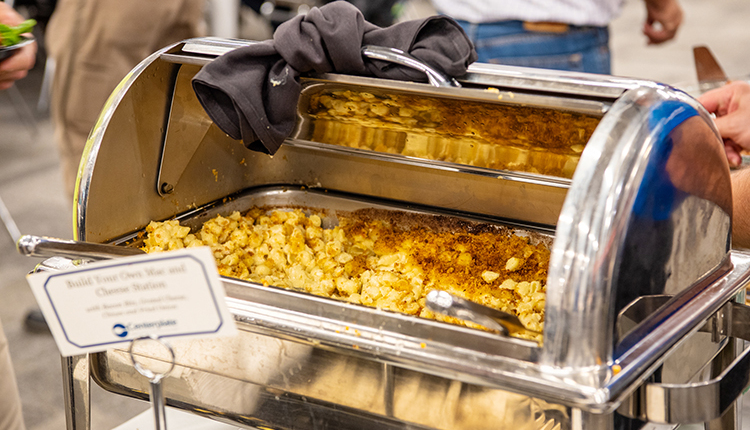
In our animal care toolbox, vaccines and antibiotics are powerful instruments. These products can really work wonders in preventing and treating many diseases - if used properly.
Much of their success can be linked to dosage and duration of treatment, but capturing the full benefit of these animal health products begins with storage and handling. University of Wisconsin Extension Agriculture Agent Sandy Stuttgen, D.V.M., offers some guidelines to managing antibiotics and vaccines.
Storage
Stuttgen recommends producers store products in their original box to keep bottles clean and labels attached. Keep all written instructions, including the box, label and insert, with the product.
Every product should include storage directions on the label. For some, this will involve a refrigeration requirement, and the quality of the refrigerator matters. A project completed in Arkansas studied 191 refrigerators used by producers, retail stores and vet clinics. Of those tested, 76 percent were considered unacceptable because temperatures were not consistently maintained between 35° and 45°F.
Performance depends on maintenance more than type and age, according to Stuttgen. This means preventing and fixing dusty coils, clogged drain tubes, frost buildup and gaskets in poor condition. Refrigerators that are full but not packed allow air movement and perform best.
Syringes and Needles
If you are using non-disposable syringes, rinse them with hot water during use or when switching products. Don't rinse with soap or alcohol, especially if using modified live vaccines, as this can kill the vaccine virus.
After use, take the syringe apart, wash all parts with a mild soap and rinse thoroughly. Steam or boil the syringes, or wrap them in several layers of moist paper towel and microwave them. Let them air-dry and cool completely before putting them back together. Store syringes in the freezer in a sealed plastic bag.
When it comes to needles, dull ones bend and break easier than sharp ones. When vaccinating multiple animals, change the needle every five to 10 animals to maintain a sharp edge.
Timing
When using an antibiotic, you have to keep the withdrawal time in mind. Be aware that a sick, immune compromised animal may not metabolize antibiotics as fast as the label states.
Stuttgen advises producers to not vaccinate when the temperature is over 85°F. It is common for animals to spike a fever after vaccination, and that could be elevated even more in hot weather. Also, when using products outside in warm or cold weather, keep them out of the sunlight and carry them in a cooler, adding an ice pack during summer months.
She also commented on the importance of not mixing two products in one syringe, as they may react poorly, reducing their effectiveness and causing a painful injection.
The fact sheet "Animal Health Product Failure: Due to Storage and Handling" contains more details on handling and administering health products.

The author is an associate editor and covers animal health, dairy housing and equipment, and nutrient management. She grew up on a dairy farm near Plymouth, Wis., and previously served as a University of Wisconsin agricultural extension agent. She received a master's degree from North Carolina State University and a bachelor's from University of Wisconsin-Madison.








